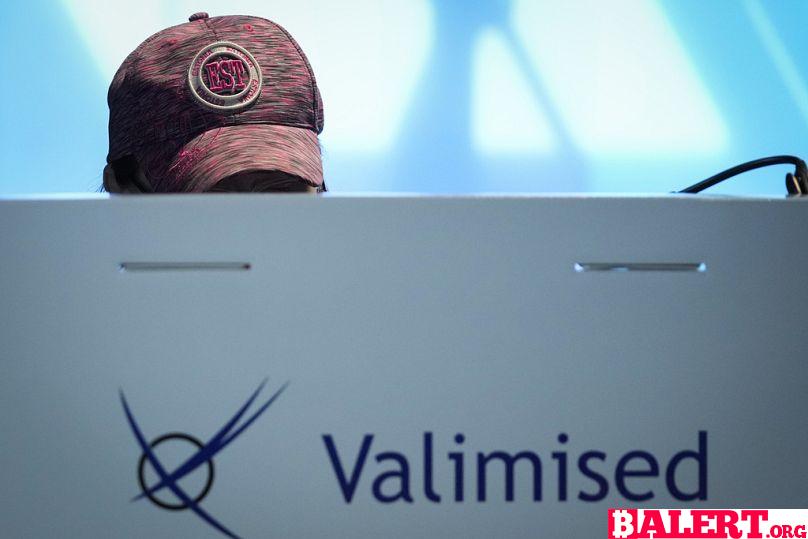World
The Impact of Mobile Voting in France’s Legislative Elections
Explore the transformative effects of mobile voting on France’s legislative elections. Discover how technology is reshaping voter engagement, accessibility, and the overall electoral process in this insightful analysis.

France’s Landmark Legislative Elections and the Rise of Mobile Voting

The snap legislative elections in France, held on 30 June and 7 July, captured worldwide attention as observers expressed concerns that the far-right party, National Rally (RN), might secure an unprecedented majority in the French legislature since World War II. Although the RN did not perform as well as anticipated in the polls, a coalition of leftist parties, along with President Emmanuel Macron’s centrist party, successfully formed a parliamentary majority.
However, beyond the political implications, this election was historically significant for another reason: it marked the organization of the largest-ever mobile political election. While online voting was limited to French citizens residing abroad, over 1.1 million votes were cast entirely online across the two rounds of voting, representing an impressive 75% of total votes from the French diaspora.
The Advantages of Mobile Voting
The benefits of mobile voting are substantial. With more than 90% of Europeans owning smartphones, mobile voting—also referred to as internet or online voting—provides a significantly more convenient way for citizens to cast their votes. Voters can exercise their democratic rights from virtually anywhere using their phones, eliminating the need to travel to polling stations and endure long waiting times. Additionally, mobile voting can be conducted on various electronic devices, such as tablets or laptops, thus greatly enhancing voting accessibility.
This method is often the only viable option for numerous voters, including those living abroad, individuals with disabilities, and people displaced due to educational or professional commitments.
Mobile Voting: A Preferred Method
Mobile voting has gained immense popularity. In preparation for the snap election, France established a comprehensive network of physical polling booths across 213 cities worldwide to facilitate in-person voting for its citizens living abroad. Nevertheless, when given the choice between in-person voting and online voting, three-quarters of French citizens abroad opted for mobile voting.
Several other EU countries have also embraced mobile voting systems to varying extents. Estonia, a forerunner in online voting, has offered an online voting option for its citizens in national and European elections for nearly two decades. The recent European parliamentary elections in Estonia saw 51% of voters choosing to vote online, marking the highest proportion to date and reaffirming the trend that voters prefer mobile voting when given the option.
- 2024 is the biggest election year in history. What role is e-voting playing and how secure is it?
- The more rights the EU’s mobile citizens have, the stronger we are
Outside of the EU, mobile voting is also gaining traction. Approximately two-thirds of US states permit military personnel to vote online, a critical option for those stationed in remote locations. In the absence of online voting options, military and overseas citizens in the US often resort to mail-in ballots, which can lead to delays, disenfranchising many eligible voters. A US government study revealed that at least 40% of military and overseas voters who wished to participate in the last presidential election faced challenges in receiving and returning paper ballots on time. Mobile voting presents a viable solution to these issues, with over 300,000 ballots submitted online during the 2020 US presidential election, albeit a small fraction of eligible voters abroad, it marks an encouraging step forward.
Increasing Voter Turnout
By enhancing voter accessibility, mobile voting yields another significant advantage: it boosts voter turnout. In a pilot program conducted near Seattle, Washington, voter turnout doubled when a local district offered mobile voting to all eligible voters. Over the subsequent three elections, turnout surged by more than 200%.
Higher voter turnout strengthens the legitimacy of the democratic process, ensuring that elected officials’ decisions align with the public’s will. This, in turn, fortifies democracy. Unfortunately, voter turnout across Europe has been declining in recent years, with only 32% of Romanians participating in their national parliamentary elections in 2020 and just 39% of Portuguese citizens voting in their presidential election in 2021. Turnout in European elections tends to be even lower, exemplified by only 21% of Hungarians voting in the latest European elections in June. Similarly, primary elections in the US for congressional seats rarely exceed a 30% turnout rate.
This trend of low voter turnout can be attributed to a sense of apathy or disillusionment with the political process, leading to a political environment where elected officials may not feel compelled to address the needs of all citizens to secure re-election. This creates a vicious cycle where underrepresented groups withdraw from politics, believing their votes hold little value, further eroding trust in political institutions.
- Countries unprepared for voters with disabilities, says report
- Switzerland offers cash to hackers who can crack its e-voting system
By removing obstacles to voting for all demographics, mobile voting has the potential to restore confidence in political institutions and invigorate democracy.
Mitigating Security Concerns
Critics of mobile voting often cite security as their primary concern. While security challenges exist in any voting system, advancements in technology can now ensure voter confidentiality and security in mobile voting that surpasses traditional, offline methods. Despite initial loading delays experienced by some overseas French voters, these issues were promptly resolved, allowing for over 1.1 million votes to be cast without security breaches.
Modern electronic platforms are designed to tackle key challenges associated with mobile voting, including voter authentication, privacy, vote integrity, and the ability to audit results. Through sophisticated encryption and end-to-end verifiability, systems like the one implemented in Estonia demonstrate that it is possible to establish a secure and convenient voting process on a large scale. End-to-end verifiability empowers voters to independently verify the voting process, ensuring their votes remain secure against phishing attempts, malware attacks, data breaches, and other potential risks.
Recent developments in mobile voting technology present a transformative opportunity to enhance electoral processes and fortify democracies globally. France’s experience illustrates that large-scale mobile voting can be organized within a short timeframe with minimal complications and reliable outcomes. As mobile voting technology continues to evolve and gain public confidence, it is likely to become increasingly standard in electoral practices.
In an era where democracy faces mounting pressures worldwide, mobile voting offers a promising avenue for revitalization. Encouraging active citizen participation is essential for healthy democracies, and mobile voting has the potential to energize the electorate, fostering a virtuous cycle of increased voter engagement, greater electoral accountability, and improved policies and outcomes.

Remi Meehan is a doctoral researcher at the Centre for International Studies (CERI) at Sciences Po, and Bradley Tusk is a philanthropist and co-founder of the Mobile Voting movement.
At Euronews, we believe all views matter. Contact us at view@euronews.com to send pitches or submissions and be part of the conversation.
World
Dominique Pelicot Testifies in Harrowing Rape Trial
Join us as Dominique Pelicot courageously testifies in a harrowing rape trial, shedding light on the complexities of trauma and justice. Her powerful story raises crucial questions about the legal system and the importance of support for survivors.

Dominique Pelicot Takes the Stand in Shocking Rape Trial
In a courtroom drama that has captivated France and garnered international attention, Dominique Pelicot, the man at the center of a harrowing rape trial, finally addressed the court. With tears streaming down his face, he recounted how his wife had been instrumental in helping him cope with a tumultuous past marked by trauma. He revealed that he had endured a sexual assault at the tender age of nine while hospitalized, and he also witnessed a gang rape during his teenage years while working as an apprentice electrician on a construction site.
“She didn’t deserve this, I acknowledge that,” Mr. Pelicot stated, his voice barely audible as he struggled to convey his emotions. The gravity of the situation weighed heavily on him, and the courtroom fell silent, straining to catch his every word.
Now 71 years old, Mr. Pelicot faces serious allegations of drugging his wife, Gisèle Pelicot, whom he has been married to for half a century, over a span of nearly ten years. Prosecutors contend that he used drugs to render her comatose, allowing him to rape her repeatedly. Furthermore, authorities allege that he went so far as to invite numerous men into their home, facilitating a nightmarish scenario where they, too, engaged in the assault of his wife.
Overall, 51 men, including Mr. Pelicot, are on trial concurrently, primarily facing charges related to the aggravated rape of Ms. Pelicot. Among them, one individual has already pleaded guilty to similar crimes, admitting to drugging his own wife to assault her and inviting Mr. Pelicot to partake in the horrific act while she was incapacitated.
Mr. Pelicot’s unexpected testimony came after a tumultuous start to the trial. Just a week in, he was stricken with severe health issues that forced him to miss four consecutive days in court. The head judge ultimately decided to postpone proceedings, as Mr. Pelicot was diagnosed with kidney stones, a kidney infection, and prostate complications, adding yet another layer of complexity to this already harrowing case.
World
Meta Bans Russian State Media Outlets from Social Media Platforms
Explore the implications of Meta’s decision to ban Russian state media outlets from its social media platforms. Understand the impact on information dissemination and the ongoing battle against misinformation in the digital landscape.

Meta Imposes Global Ban on Russian State Media Outlets
In a significant move, Meta Platforms, Inc., the parent company of Facebook, has announced the prohibition of Russian state media outlets, including RT (Russia Today) and Rossiya Segodnya, from all its social media platforms. The decision stems from the company’s concerns regarding the deceptive strategies employed by these media organizations to execute covert influence operations across the internet.
Meta made this announcement on Monday, emphasizing that the ban will be enforced worldwide across its various platforms, such as Instagram, WhatsApp, and Threads. The rollout of this ban is expected to take place over the coming days.
Statement from Meta
A spokesperson for Meta elaborated on the decision, stating, “After careful consideration, we have expanded our ongoing enforcement actions against Russian state media outlets. As a result, Rossiya Segodnya, RT, and other affiliated entities are now banned from our applications globally due to their involvement in foreign interference activities.”
For further insights into this development, watch the video in the player above.
World
Trump Recalls Alleged Assassination Attempt While Golfing
Explore Donald Trump’s chilling recollection of an alleged assassination attempt he experienced while enjoying a round of golf. Delve into the tense moments and his reflections on safety, fame, and the unpredictability of public life.

In a recent interview on the social media platform X, Republican presidential nominee Donald Trump recounted a harrowing incident he claims to have experienced while playing golf. Trump described how, during a peaceful Sunday morning round with friends, the tranquility of the day was abruptly shattered by the sound of gunfire in the air.
“It was a beautiful day, everything was just perfect,” Trump reflected. “Then all of a sudden, we heard shots being fired—probably around four or five in total.” He went on to explain that a Secret Service agent was the first to spot the suspect, who was allegedly armed with an AK-47, a powerful assault rifle.
“The agent saw the barrel of the weapon and immediately took action, returning fire at the barrel and aiming in the direction of the bushes,” Trump detailed. “I would have loved to have sunk that last putt, but we decided it was best to leave the scene promptly.”
Trump expressed his gratitude towards the agents and a vigilant civilian who aided in tracking down the suspect, who was eventually apprehended following a high-speed chase.
Suspect Faces Multiple Federal Gun Charges
The FBI has identified the suspect as Ryan Wesley Routh, accusing him of targeting Trump during his time at the golf club in West Palm Beach, Florida. According to an FBI report, Routh had allegedly hidden among the hedges of the golf course for an astonishing 12 hours. Authorities discovered an SKS-style assault rifle, a GoPro camera, and a bag of food at the scene.
The 58-year-old Routh is now facing two serious federal gun charges. If convicted on both counts, he could face a combined maximum sentence of 20 years in prison. Notably, neither of the charges is directly related to an assassination attempt. The first charge pertains to possessing a firearm despite a prior felony conviction, which carries a potential 15-year sentence, a fine of $250,000 (€225,000), and three years of supervised release.
The second charge involves possession of a firearm with an obliterated serial number, which could result in a five-year prison term, the same financial penalties, and also three years of supervised release. As the investigation continues, additional charges could be forthcoming.
While the motive behind Routh’s actions remains unclear, his digital footprint reveals strong political affiliations, particularly concerning issues surrounding Ukraine and China. Routh consistently expressed support for Ukraine across various social media platforms, even claiming to have orchestrated a recruitment scheme for international volunteers aiming to assist Ukraine in its fight against Russia’s invasion. This behavior has been denounced by Ukrainian soldiers and members of the International Legion, who disavowed Routh’s actions and motives.
-

 Business5 months ago
Business5 months agoThe Significance of Jackson Hole: A Central Banking Tradition
-

 Tech4 months ago
Tech4 months agoNew Leaks and Features About the Samsung Galaxy S25 Ultra
-

 Business6 months ago
Business6 months agoObituary: Dan Collins
-

 Article7 months ago
Article7 months agoCreative Design Applications Developed with Artificial Intelligence
-

 Business4 months ago
Business4 months agoBhutan’s Strategic Investment in Bitcoin: A New Era for the Himalayan Kingdom
-

 World4 months ago
World4 months agoThierry Breton Resigns: Impact on European Union Leadership
-

 Gaming4 months ago
Gaming4 months agoNew Details and Trailer Released for Dead Rising Deluxe Remaster
-

 Gaming4 months ago
Gaming4 months agoNew Details for Alan Wake 2 and PlayStation 5 Pro Announcement












